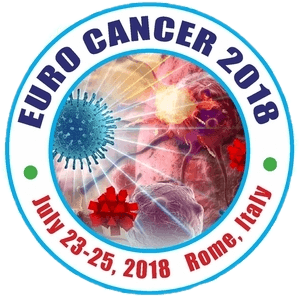
Ibrahim Khalifeh
American University of Beirut Medical Center, Lebanon
Title: Monitoring immune response in tumors
Biography
Biography: Ibrahim Khalifeh
Abstract
There is growing awareness and importance of the input and insights of different specialties to understand and monitor tumor microenvironment and consequently understand the mechanisms of response and resistance to various cancer treatments. Although current immune monitoring strategies pose clinical challenges, advances in approaches and techniques are improving our ability to better understand immune responses in the tumor microenvironment. In addition to this, improvements in genomic profiling have allowed for a deeper understanding of the influence of mutational burden and other genomic factors on anti-tumor immunity. Continued progress in immune monitoring strategies will help us better understand who will benefit from therapy and will help guide rational choice of treatment as well as proper timing, sequence, and combinations of therapeutic regimens. With the increasing use of immunomodulatory agents in clinical practice, there is a growing interest in assessing anti-tumor immune responses via tissue-based and blood- based assays. However, complexities exist in this analysis, particularly when considering use of archival versus fresh tissue cryopreservation has been shown to alter certain immune cell subsets and cytokine profiles as well as gene expression profiles formalin fixed paraffin embedded (FFPE): mutational burden and neoantigen prediction, genomic variants are lost by using FFPE dynamic properties of the immune system and that archival tissue is often collected in advance of treatment of interest may make data obtained from archival tissue less relevant. This is particularly pertinent with the use of immune checkpoint inhibitors in clinical trials and in standard of care treatment, where assessment of programmed death receptor-1 ligand to determine treatment This may in part explain why clinical studies have produced varying results regarding utility of PD-L1 as a predictive biomarker for selection of patients in which archival tissue was often used for PD-L1 determination. Another rapidly emerging area of investigation that must be considered in the context of anti-tumor immune responses is the microbiome. The microbiome refers to the entire community of bacteria (and their genomes) within an organism, and the number of bacteria within a human outnumbers the number of human cells by at least 10:1. There is a growing role of the microbiome in health and disease, and evidence that the gut microbiome may shape anti-tumor immune responses as well as responses to immune checkpoint blockade and other immunotherapies. Tumor-microenvironment interactions require longitudinal assessment throughout the course of therapy. Optimize concordance between tissue-based and blood-based techniques to assess immune responses will offer better assessment and monitoring.

